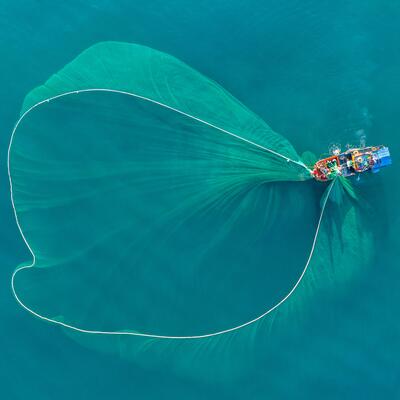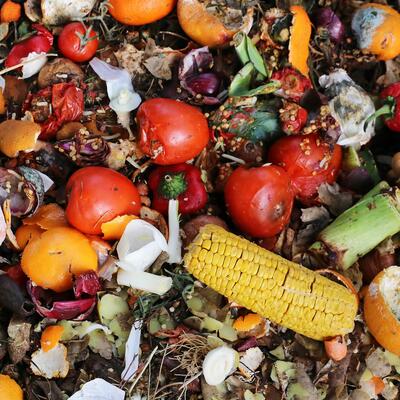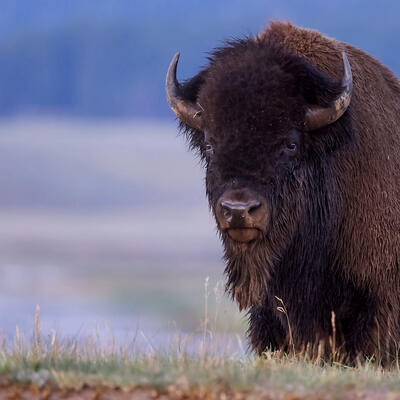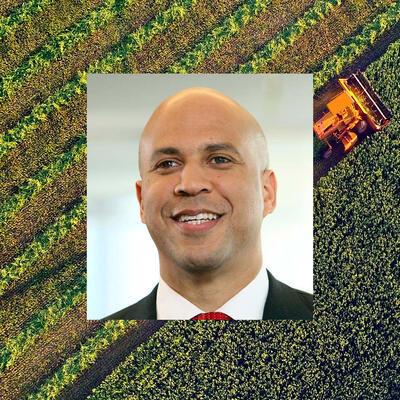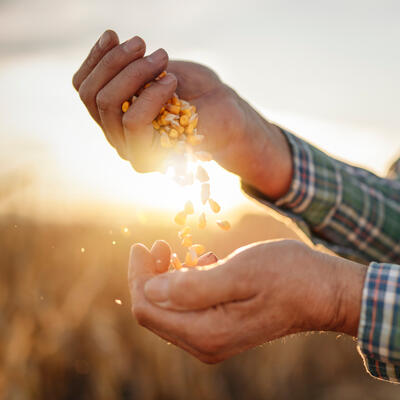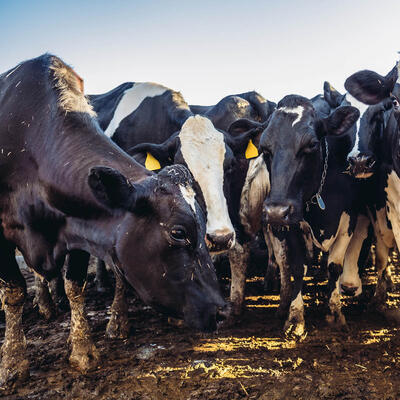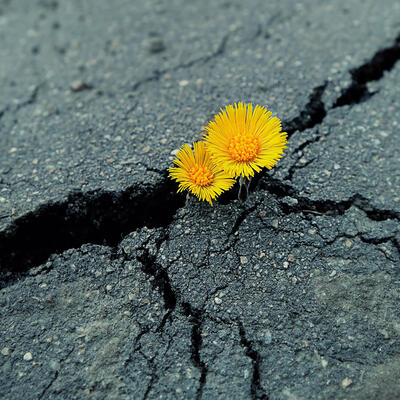
Beans and Brew
Guests
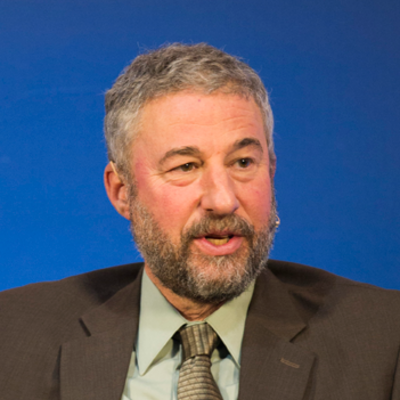
Ken Grossman
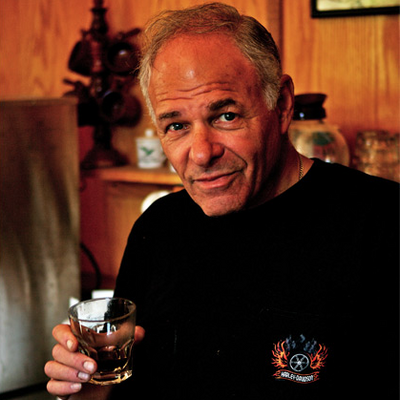
Paul Katzeff
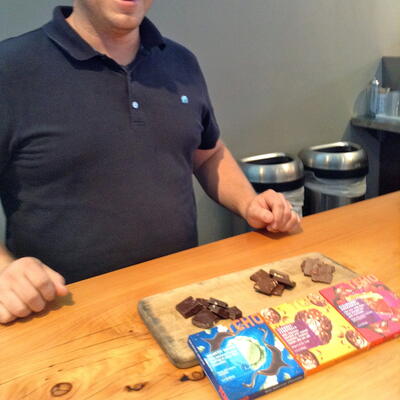
Brad Kintzer
Summary
Coffee, beer and chocolate – oh my! How is global warming affecting our beloved guilty pleasures? Can growers and producers adapt to a changing climate?
Ken Grossman, Co-Founder & CEO, Sierra Nevada Brewing Co.
Paul Katzeff, Founder & CEO, Thanksgiving Coffee Company
Brad Kintzer, Chief Chocolate Maker, TCHO Chocolate
Full Transcript
Greg Dalton: This is Climate One, changing the conversation about America’s energy, economy and environment. I’m Greg Dalton. Beer, coffee and chocolate are among life’s finer pleasures. Today, we’ll discuss their future in a hot and crowded world. New record high temperatures were set in the United States and many countries in 2014 and that is impacting the production of beer, coffee and chocolate and a whole lot more. Over the next hour, we’ll also talk about putting chocolate into beer, pairing chocolate and beer and flavored coffees. We’ll also talk about organic fair trade, GMOs, crops and whatever else that’s on the mind of our audience here at the Commonwealth Club in San Francisco. We’re pleased to have with us three veterans from the world of beans and brew. Ken Grossman is co-founder and CEO of Sierra Nevada Brewing Company. Paul Katzeff is founder and CEO of the Thanksgiving Coffee Company. And Brad Kintzer is chief chocolate maker at TCHO Chocolate. Please welcome them to Climate One.
[Applause]
Brad Kintzer, when you were going to college in Vermont, did you notice the impacts of climate change?
Brad Kintzer: You know, I actually, I did. At least I was told they were happening by people that were studying it. One of my -- I studied in part Dendrology or the study of trees and my dendrology professor used to always to say, hey, guess what guys, it’s a great time to buy land in Northern Canada. And --
Greg Dalton: This was 20 years ago?
Brad Kintzer: This was, yeah, about 20 years ago now. And so anyway, I never quite know what that meant, I thought he was being a little dramatic. But then more and more as I sort of study the natural environment of Vermont and saw how the seasons were changing and how they were never quite the same year after year and, yeah, it’s definitely something that was happening.
Greg Dalton: Yeah. And maple syrup, the freeze and thaw cycle, the insect infestation, those sorts of things. Ken Grossman, you’re an outdoorsman, avid outdoorsman, when did you first notice the impact of climate change in your outdoor activities?
Ken Grossman: Well, I think being close to the Sierras we saw a lack of snowpack, it was starting to happen on a more regular basis and obviously we’re suffering from that currently at a pretty drastic level. So the mountains didn’t have as snow as I remember when I first moved to Chico, and they really haven’t since.
Greg Dalton: Paul Katzeff, you grow raspberries and that was one of your early indicators of climate change. Tell us about how your raspberries were affected?
Paul Katzeff: I used to be the king -- the raspberry king of Mendocino County.
[Laughter]
Because my raspberries ripen in two weeks to two days before the county fair which is absolutely perfect. And then, about ten years ago, my raspberries began to ripen later and later. And now they ripen during what was the rainy season. The rainy season is no more in California at least in Northern California. Even though it’s raining now, I mean, it hasn’t been raining for a long time in the way it used to. So my raspberries no longer can be entered into the county fair. That’s when I began to notice the change. But the real change that I noticed was on my last trip to Africa to Rwanda in Uganda where I work with supply chain development and coffee cooperatives. I’ve made about a hundred trips to exotic hot countries and this time after a hundred trips of being totally safe, I just didn’t feel like taking the Malaria medication.
I was going to be working at 6600 feet. And on the last night -- and that’s a pretty cool climate and mosquitos generally don’t hang out up there. But on the last night I was there, underneath my little tent, mosquito tent, I heard a bzzz. And not thinking having been there for three months and really was tired, I just the shooed the thing out, I thought. Five days later, I’m in Pacific General -- California General here in Emergency with Malaria, and eight days in critical condition. So climate change really almost killed me. The raspberries were small compared to the experience I had. A new experience in coffee-growing countries and it has some implications that we can talk about.
Greg Dalton: Malaria used to be a leading cause of death in California. And I’ve interviewed people here at Climate One who said malaria may come back to California and the other parts of the United States where it’s no longer -- where it had been long gone. But we’re here to talk about chocolate and then happy things.
[Laughter]
So let’s talk about chocolate and beer and pairing, et cetera. Ken Grossman, have you used chocolate in Sierra Nevada beer?
Ken Grossman: We have. We’ve got a small experimental brewery, we’ve done a number of beers with cocoa nibs and other types of chocolate that goes really well with roasty flavors of darker beers and we’ve done quite a few. We’ve actually done a coffee beer that s light in color; it was not dark with natural coffee extract.
Greg Dalton: So how does that work, do you get a little buzz, it keeps you up? I mean, I’m trying to think about all those -- it’s part of appeal I guess, a little jolt plus a little --
Ken Grossman: Actually the caffeine levels I think they’re closer to a decaf coffee than an espresso but the coffee aroma works really well with a lot of beer styles.
Greg Dalton: Paul Katzeff, coffee and beer, does that go together for you?
Paul Katzeff: No.
[Laughter]
Greg Dalton: Did you ever make coffee with beer in it?
Paul Katzeff: No. Not yet. That’s the reverse. I’m more of a purist when it comes to beer. I love my beer and I love my coffee and I love my chocolate. And all of these flavors added is like an indication of America, you know, it’s like aren’t we satisfied with the pure beautiful things that we were once satisfied with? Why do we need pumpkin spiced coffee?
[Laughter]
Why do we need you know -- it’s true. And America is --
Ken Grossman: I agree with that.
Paul Katzeff: What?
Ken Grossman: I agree with that.
[Laughter]
Paul Katzeff: I’m not a purist in most things, but when it comes to these beautiful products that are crafted in a way to bring out the nuances of [unintelligible], of the country of origin, of the altitude, of the variety, why do we want to abuse that by changing it, by taking away the character of the people and the land? And I don’t know about brew masters, but as a roast master, I feel like I have an obligation to the place and the people. And to not -- I hate to sound critical of you and in your blending of this, but, you know, I wouldn’t drink that beer, I wouldn’t. I like -- beer now is like a food. It’s like rich and deep.
Ken Grossman: And I mean most of what we produce is using water, hops, malt and yeast and not using coffee or chocolate but, you know, for us to be able to expand and experiment, I think it adds a sense of creativity to the brewers and these are interesting beverages not necessarily traditional beers but, you know, those combinations can work well together and I don’t know if I brought one, but if I don’t have one, I’ll send you.
Paul Katzeff: I probably would like it, but I wouldn’t recommend it.
Ken Grossman: Yes.
[Laughter]
Greg Dalton: So Ken Grossman, it sounds like you’re talking about you running a small business known craft, known for innovation, trying new things and maybe there’s a fine line, one person’s gimmick is one person’s experiment.
Ken Grossman: Certainly. You know, I think for us though and what craft brewing has done to the whole U.S. beer scene has been, you know, nothing short of amazing. And America, 35 years ago was not known for brewing remarkable beers. And we would have visitors from Europe come over and sort of, you know, laugh at the light lager styles that were about the only available. And today, those same countries, Germany and England, are looking to the U.S. for inspiration about making great beers and they’re driving a sort of a new consumer to appreciate what beer can be.
Greg Dalton: Brad Kintzer, I looked up a little bit the internet, so it must be true here about pairing of stouts and porters with dark chocolate. So let’s have your view on pairing beer and chocolate as a chocolate maker.
Brad Kintzer: Well, I definitely, Paul I definitely appreciate your purist perspective, but I definitely also I’m sort of -- I’m definitely an experimenter at heart. My wife can tell you that, and let’s say one out of four dishes she really loves that I make but, you know, pairing of beer and chocolate is just, you know, some pairing just simply don’t work. But when you find -- when you really look deep into the process of how beer is made and how chocolate is made, there’s actually a lot of similarities and there’s a lot of synergistic flavors that are there. So a lot of the same flavor compounds that are found in beer are also found in chocolate, and then there’s also sort of complementary flavors as well. So when you find that right pairing it can be kind of another level kind of experience.
Greg Dalton: What’s a favorite chocolate of yours other than the TCHO or your company, what favorite chocolate do you like?
Brad Kintzer: Oh, you know, there’s so many great chocolate makers out there, you know, there’s a lot of chocolate makers that I don’t really love, but there’s --
Greg Dalton: Hershey’s, for example.
Brad Kintzer: I can eat a Hershey bar any day when it comes down to it, but I think, you know, that’s sort of taking off my purist hat but if I was to really look at the purist kind of thing I would say there’s a great company in Italy called Amedei that’s just as really as pure as you can get. They look at finding the best cocoa beans in the world and making them into just a phenomenal chocolate. It’s sort of difficult to find. It’s very expensive, but they do a great job, definitely a lot of respect for them. Then I can also have a Hershey bar sort of appreciate that takes you straight back to childhood, so something must be said about that.
Greg Dalton: Paul Katzeff, a coffee that you appreciate other than Thanksgiving?
Paul Katzeff: I had a cup of Farmer Brothers coffee the other day in a café. Farmer Brothers is the Hershey bar of old cafes or cafes that run in an older style. And they asked me if I wanted a French roast in the café or do I want a regular. So I picked regular. I don’t like burnt coffee. And I was amazed at what I knew about that coffee from just tasting it. I knew the people, I knew the place, I knew the variety. There was a wonder in the cup for me. There’s a lot of ways to enjoy a cup of coffee.
I mean, if you know a lot, then you can bring that to your taste buds, you can bring the people to your taste buds, you can bring the whole experience. So these guys know their stuff, I know it. They bring a whole lot more than flavor to their experience of tasting their products and other products. So do I have a favorite? They’re all my favorites, all of them, even the bad coffees because I know I can tell what country the coffee came from. I can tell what altitude it’s from or I can imagine and it brings a new dimension to the tasting experience. It’s not all about flavor when you get to a certain point.
Greg Dalton: Ken Grossman, Sixpoint Brewery has something called the Global Warmer, have you tasted that one?
Ken Grossman: I have not.
Greg Dalton: Okay. Any other favorites? We’re going to get back to climate change here but any other favorite beers other than what come out in Sierra Nevada?
Ken Grossman: You know, today, there’s the two new breweries opening every single day. And I travel around quite a bit and there are some great beers out there. We’re good friends with the folks up at Russian River and they do a great job. And we’ve got friends across the country, I’m not going to single too many of them out but there’s really a lot of fun beers to enjoy today.
Greg Dalton: It’s like asking your favorite child, I understand. So tell us the story, the Sierra Nevada story. You’ve been sustainably oriented really from the beginning. Some of the first beers you made were in returnable bottles and you’ve -- so fuel cells, solar cells, tell us this sustainability story of Sierra Nevada.
Ken Grossman: Well, I mean, initially it was out of necessity, we didn’t have any money, so we pretty much built everything from old dairy equipment and I built the kettle and mash unintelligible] and all that stuff early on to get started. There were no suppliers back when I started in the late 70s.
Today you can buy brewing equipment from dozens of vendors across the country. But back then it was really, you had to figure it out, you had to build it yourself. So we were sustainable out of necessity. And then as we’ve grown, we’ve, you know, invested resources to try to do as good of a job as we can to manage our resources and our inputs. So we were an early adopter of fuel-cell power and ten years ago we put in megawatt fuel-celled plant, one of the largest in the country. And we’ve got more than 10,000 solar panels in the facility. We’ve been done a lot around water conservation and energy savings and it’s been a focus of ours for quite a few years.
Greg Dalton: And why do you do all that? ‘Cause the employee -- you cared, your employees cared, your customers cared, why?
Ken Grossman: ‘Cause a manufacturer of a product that uses a resource. We use bottles, we take a lot of energy, roasting barley, boiling the wort, you know, all of that is pretty energy intensive. So for us it was sort of what we felt was the right thing to do as we’re growing our company to reinvest in equipment and technology that would reduce our impacts.
Greg Dalton: And you even have a live energy meter in your facility at Chico, they can see the real-time consumption is that for show, for customers, for --
Ken Grossman: No. It’s for -- we show it internally so all of our employees get to see we have enough fuel-cell and solar power that we’re an exporter during most days. And we’ve been up in the 60 to 70 plus percent producing all of our own power to operate. We’ve got a biogas digester, so we create some gas. We just built a brewery in North Carolina, it’s got solar as well as gas turbines off of methane produced from waste water digestion.
Greg Dalton: So North Carolina outlawed sea level rise and tried to -- and how did going in there and building a lead factory, how did that go?
Ken Grossman: There were some challenges with both municipalities, but overall, we were very well supported and encouraged. We were innovators and so a lot of the local engineering firms really hadn’t done a lot of the kind of water recovery projects that we were putting in place. So a bit of a learning curve for the locals, but I think overall we’ve been very well supported in our efforts.
Greg Dalton: Ken Grossman is co-founder and CEO of Sierra Nevada Brewing Company. Brad Kintzer, how about sustainability at TCHO, what do you do in there to kind of lighten the footprint? And then we’ll get Paul Katzeff to sort of talk about the impact of the product you’re making.
Brad Kintzer: You know, for cocoa, we touch a lot of different places, so we buy cocoa beans from Ecuador, Peru, Dominican Republic and West Africa and Ghana. And we’re really committed to organic. And so that’s something that we sort of have a big focus on, is sort of reducing the use of unnecessary pesticides, chemicals in the growing process. We also have made the choice to actually keep of the processing done at country of origin to reduce overall carbon footprint. So we do of our roasting down at origin. It’s supervised by myself and another colleague. So every bean that’s roasted, we supervise ourselves and travel down to Ecuador, Peru or Mexico or wherever it might be. But those things are -- some of the steps that we’ve taken and I would love to, you know, they get to a place like Ken where we have a lid-certified facility and that sort of thing. Right now we just moved from the Embarcadero, San Francisco which is a great spot. But we’ve moved to Berkeley and we’ve moved into an old calculator factory. So we sort of taken up residence in a larger and sort of older building. So it’s a great spot though.
Greg Dalton: Are you going to do some energy efficiency things there?
Brad Kintzer: Yeah, we’re definitely. Our engineers are looking into all that stuff and we’re actually just building out. We’ve built out the factory but we’re building out offices and the lab and everything. So we’re taking all that into consideration trying to figure out what would work best for us.
Greg Dalton: Paul Katzeff, you’ve been involved in the sustainability for a long time in the coffee industry. So tell us how -- your evolution of thinking in terms of sustainability in coffee and what that means?
Paul Katzeff: Somewhere around 1985, I made my first visit to a coffee growing country. I’d been roasting coffee for about 15 years. And I had focused completely on the product. And when I got to Nicaragua in 1985, it was like six years after the revolution. And I had always felt that the farmers were the enemy, buy cheap, great stuff, make money. And when I got there and I actually saw the poverty of 500 years of coffee, you know, coffee trade, I was overwhelmed.
The motto of my company at that time was “in search of the perfect cup.” It was product-oriented. On the plane ride back, having been really shook by what I saw I changed the motto of the company to “not just a cup, but a just cup.” And that happen to coincide with my being elected president of our national trade association, the Specialty Coffee Association of America. So I had a bully pulpit to express my new vision of switching to people instead of product. And I have a Master’s degree in Social Work and I practiced in the 60s, for a decade.
And then I became -- I was a hippie and I traveled across the country, you know, with a wood burning stove and a water bed and I was making candles and stringing beads like everybody else, maybe some people were working with leather.
[Laughter]
And making Birkenstocks or sandals, whatever. Actually, the young people in Nicaragua who were going down there to help the revolution were called Sandalistas. They weren’t Sandinistas, they were Sandalistas. And so when I came back, I had a whole new perspective and I was president of the largest coffee trade association in the world at that time. And I used Thanksgiving Coffee Company and the Specialty Coffee Association position and I had to create a power base to express new ideas. While I was the president I created the environment committee of the Specialty Coffee Association because at that time the environment was in trouble but not in the same way we think about today. Sustainability was a slow process of defining for the coffee industry. First, it was the environment -- save the environment. The trees were coming down to grow coffee in the sun, this is not good for birds, migratory songbirds, it wasn’t good for monkeys, it wasn’t good for arachnids, spiders, it wasn’t good for anything. So that was the first part. The second, a couple of years later, I recognized that the environment wasn’t the only issue, that there were issues with social justice, that the coffee industry was harming people. We who are sending our kids to college and earning good, you know, and living well, while we were harming people in other countries. So social justice was the second leg of the sustainability curve.
And then fair trade occurred somewhere around 1999. The fair trade movement began and Thanksgiving Coffee Company was the second company to join that movement and sign up. So economic justice became an aspect of the environment committee. And then, having moved on the next generation of people in the coffee industry renamed it the sustainability committee.
Greg Dalton: And how do you think companies like Starbucks et cetera are doing on sustainability now? Is real or is it green washing?
Paul Katzeff: Starbucks isn’t green washing. I mean, I --
Greg Dalton: Do you respect what they’re doing in terms of environmental stewardship?
Paul Katzeff: I have a lot of respect to Starbucks. I think that, I mean, I’m not talking about their product right now, I’m talking about their company. Starbucks is a superhighway for ideas in coffee and they have really been helpful in promoting the ideas for sustainability. And when you think about the last two decades of new companies being born and raised in the United States, is there a company better than Starbucks? I mean, really, their -- their CEO represents good ideas in sustainability. They have the café practices, which I must say is a system that I think they took from my brochure.
[Laughter]
I really do. I had café practice. I called it something else, I called it beyond organic and I had point system. So but -- no I’m not a Starbucks basher, I think that they are a good company in the United States, a whole lot better than a lot of companies that are doing bad things.
Greg Dalton: Paul Katzeff is founder and CEO of Thanksgiving Coffee Company –
Paul Katzeff: Co-founder --
Greg Dalton: Co-founder.
Paul Katzeff: I have to put in a plug for my wife, Joan, Thanksgiving Coffee Company would not be what it is today if we weren’t partners together.
Greg Dalton: Fabulous, thank you. I’m Greg Dalton. We’re talking about coffee, chocolate and beer at Climate One. Ken Grossman, big beer companies are they green washing, are there real sustainability things happening at the mega breweries these days?
Ken Grossman: And I think the brewing industry in general has done a pretty good job of being stewards of the environment and working towards lessening their impacts. The larger corporations I think are more challenged than the smaller breweries are to do things because of stockholders and board of directors who may not see the long-term benefit of some of the investments. But things like water footprint is certainly focused on by global brewers and energy conservation is being driven in part by manufacturers of brewing equipment in Germany because energy is so expensive there. So I think large brewers are working towards the right goals I think in general.
Greg Dalton: Brad Kintzer, you told me something that some of the chocolate makers, people growing cacao had never actually tasted chocolate before. That sounds amazing to me that that could be.
Brad Kintzer: It is. It is pretty amazing. Actually, 75% of the world’s cocoa is coming from West Africa where cocoa farmers are making a couple of dollars a day and they don’t -- if they, you know, do have an extra dollar it’s probably not going to go for a chocolate bar. That’s a huge challenge for us as an industry, is when the people that are supplying most of our cocoa and raw materials are completely disconnected from what it is that product is really being used for.
And actually I have to -- I’m honored to be here with Paul because we’ve never met before but Paul was the inspiration for our program that TCHO started where Paul actually, and he could talk more about it, but actually brought the idea of coffee cupping down to farmers. So he was a real pioneer on that. And actually it was the same case in coffee as well about 25 or 30 years ago. Coffee farmers had never tasted a cup of coffee yet they were, you know, for generations growing coffee beans. And so when you actually connect, when the farmers -- when cocoa farmers or coffee farmers actually understand how what they’re doing on the farm level directly impacts the quality, you’re immediately creating a better feedback system where you can really get a better quality cocoa, a better quality coffee, whatever it might be. And that directly leads to a better profit for farmers and more sustainability. So I think the groundwork that needs to be done in cocoa is -- I always tell people cocoa is about 25 or 30 years behind things like beer, coffee or wine in terms of our understanding and our connectivity with the people that grow our food.
Greg Dalton: Ken Grossman is it probably fair to say that farmers of hops and barley have tasted beer before?
Ken Grossman: They have but it brings up an interesting point. We’ve been bringing our barley farmers down to the brewery in Chico and actually making beer with them. And that’s something that many of them had no clue how beer was really made. So even though they had drunk beer before they didn’t understand the importance of some of their agronomics on how it impacted with our brewing. We’ve done the same with hop farmers, we actually had the first hop convention to be held at our brewery last year and all these hop growers really had been going to resorts to have their annual conferences not going to a brewery where there products are actually used so they had the same kind of learning experience where we walked a lot of them through how beer is made from the ground up and it was quite instrumental I think in opening their eyes.
Greg Dalton: So Paul Katzeff, you really started something that affected several industries. I’d like to hear that and also let’s get to how climate change is affecting coffee growers and other people who are by definition quite poor.
Paul Katzeff: Just to take off from what you said. The reason that you want farmers to be able to taste their coffee is so they can apply technical assistance to quality improvement rather than just productivity. You want farmers to be able to work smart, not hard. And I believe that quality of coffee and quality of life go hand in hand, you don’t have to be a starving artist to produce great art and you don’t have to be a starving farmer to produce great coffee. Actually, it’s better if you’re not starving. So the concept of quality improvement is also the concept of value improvement. And one of the things I -- so that was just to define a little bit of what you were talking about.
The way it happened was I was giving a speech in Nicaragua at the first organic coffee conference and I asked people in the audience if they have ever tasted their coffee and nobody had. And while I was giving -- I said, well you should have tasting labs, you know, you should be able to taste your own coffee and the party chief for USAID Central America happened to be sitting in the audience and he came up to me afterwards and said, “That’s a good idea, why don’t you write a proposal.” So while the next speaker was speaking I wrote a four-page $400,000 proposal and gave it to him. I kept no copy, it was on yellow legal paper and a year later I get a call from him saying you got $400,000 to go and build nine tasting labs. My proposal was for to create appellations to mix this thing with creating new appellations and at the same time multi-tasking for them.
My daughter was going into high school, my son was going into college and I had a business and now I was committed to Nicaragua for the next 18 months. And so for a week every month it happened. And it literally improved the value of the Nicaraguan crop in the second year from $160 million to $200 million and that’s continued all over the world. And it’s very interesting to hear you talk about it being applied to chocolate.
One of the things I wanted to say was that we can use our companies as bully pulpits or as educational devices to change the world. And that’s one of the things that I was -- one of the things that happened to me was I saw that as a community organizer for a decade during the ‘60s when things were really revolutionary, I thought about my company in terms of social change rather than in terms of product quality. Now, to my regret I would’ve liked to have done it different, not done that but maybe waited until my company was really big, because I had such an advantage early on, to be able to do the things that you’re doing right now. Right now I have 300 pounds of worms and we recycle all of our wastes. They eat the worms, the worms eat our waste products from a factory and I have an apple orchard that all those worm castings go out there and then I take the apples and I donate this year 1,000 pounds of apples to the food bank. We’ve been planting trees. I focus my energy and my company’s energy not on a company but on our sources.
So in 1990 we helped an Ethiopian coffee cooperative plant a million indigenous trees on a mountainside to help bring back their water supply and to help them change, to get their climate changed back to what it originally was. So we focus mostly on the production side. I’d love to be able to put solar panels on my new factory and we will someday.
Greg Dalton: Paul Katzeff is co-founder and CEO of Thanksgiving Coffee Company. I’m Greg Dalton. You’re listening to Climate One. Paul Katzeff, let’s talk about the impact on coffee growers, and we’ll get to cacao growers. So how are the farmers being impacted by climate change? And we’ll get to the beer industry, where crops are moving around.
Paul Katzeff: Right now, there’s something called la roya, it’s a mold. And it doesn’t -- I mean, it comes and goes. But it requires moisture and warmth. And the best coffees are grown at high altitudes maybe 4,000 to 6,000 feet where it’s been cool and not moist. But now 75% of Guatemala’s crop and 40% of Nicaragua’s crop has been destroyed by la roya. And la roya is moving up the mountainside from low altitudes to high altitudes. And farms are being devastated, people are losing their trees, coffee’s an evergreen tree, when it loses its leaves it doesn’t grow them back. It has to grow new ones. But usually when a tree loses all its leaves, especially an evergreen tree, it dies, it can’t regenerate itself. And farms all over Central and South America are facing these problems and it’s moving up the mountainside slowly.
Greg Dalton: Do the farmers recognize it in connection with climate change? Do they connect those dots or they just --
Paul Katzeff: They - farmers are our best resource for connecting the dots but they have to be part of cooperatives. Individual farmers don’t get the same opportunities as farmers who belong to small scale fair trade farmer cooperatives because there’s a lot of education, a lot of great programs and caring goes on at cooperatives. And I believe that -- just to throw in a plug for something else about fair trade -- fair trade is not only about a minimum price for a product. It’s all about cooperatives. It’s a marketing system that levels the playing field for small scale farmers. And cooperatives are run by one farm, one vote. And in the world today where coffee is grown, most of the people have lived under dictatorships all their lives. So when you’re trying to empower people or you’re hoping to empower people, democracy starts at the bottom up. So supporting fair trade and supporting small scale farmer cooperatives is all about supporting democracy and empowerment and that’s more important than the minimum price. The pricing of coffee is a different issue but helping people empower themselves is really a powerful tool.
Greg Dalton: Ken Grossman, recently Sierra Nevada Brewery came out with a DevESTATEtion label after its estate -- tell us about that story your DevESTATEtion beer.
Ken Grossman: We’ve got a small organic barley farm and a small organic hop field that we’ve been raising for ten years and now we produce -- we were like the first producing an estate beer where we grow all the ingredients, all the barley, all the hops and we grow them organically.
And we had an awful barley harvest last year, the rains came at the wrong time and we ended up losing -- actually, we ended up with barley but we didn’t think it was great barley and so we chose to use it as organic animal feed rather than brew with it and we purchased some organic barley from some friends and ended up making what we call DevESTATEtion -- instead of estate ale it was DevESTATEtion ale.
Greg Dalton: A play on that word. Now, one particular extreme weather event may not be directly attributed to climate change but there are some broad patterns that are hitting the beer industry so tell us about that, the Yakima Valley and other places.
Ken Grossman: Right. Actually, this year in North America we had one of the worst barley harvests on record and it wasn’t because of lack of water it was because of too much water at the wrong time. Most of the barley we purchased is dry land farmed and a lot of it got heavily rained and snowed on which caused it to sprout out in the field and make it pretty unsuitable for brewing beer. What’s been happening with barley acreage it’s been declining pretty rapidly in North America and being replaced by corn, soybeans, GMO crops have replaced a lot of the barley acreage. And we’re finding more diseases coming in from those crops that are affecting barley but also just displacing the acreage. On the hops side, a lot of the traditional hop growing regions in North America have been seeing climates shifting to temperatures that do not facilitate some varieties from yielding very well or doing very well. So we’re starting to see acreage move to Idaho and other areas that are a little bit cooler. So it is affecting what varieties will grow where and farmers are taking notice that what had been a traditional harvest window is now moving quite a bit, like your berries that they happen to move their harvest times.
Greg Dalton: And Miller has experimented with putting cassava in beer, trying to diversify their inputs, right, so they’re not so dependent on hops, barley, et cetera, so that there’s different crops, in a climate destabilized world they can shift their resources around.
Ken Grossman: Yes, I mean, barley is the best thing to make beer out of. So a lot of the other starch sources are used, sorghum and other things are used in other parts of the country or other parts of world where barley doesn’t grow well. But barley has all the natural enzymes that can produce the sugars that make the best beer.
Greg Dalton: I’m Greg Dalton and you’re listening to Climate One. Today, our guests are Ken Grossman co-founder and CEO of Sierra Nevada Brewing Company, Paul Katzeff co-founder and CEO of Thanksgiving Coffee Company and Brad Kintzer chief chocolate maker at TCHO Chocolate. Free podcast of this and other Climate One programs are available in the iTunes Store.
Let’s talk about solutions. What are industries doing to address, we’ve heard about the impacts. Paul Katzeff, we’ll get to that. Impacts on chocolate, beer, coffee, the sporting goods industry, the outdoor industry, the ski industry have come together and said, “Climate is affecting our business, we need to do something about it.” Paul Katzeff, is coffee doing that?
Paul Katzeff: I would say that it’s our labels. I mean, between the three of us like 99% of American families use one of these three products or have them in their house at all times, some all three. I use my labeling in my products to promote ideas. I partner with Defenders of Wildlife to save the wolves and when you go on your shelf you’ll see a wolf face looking right at you with beautiful brown eyes. And we partner with the Dian Fossey Gorilla Fund internationally, and you can see a beautiful picture of a gorilla which I took that picture, I got that close. And with the American Birding Association we’re promoting ideas through our back label and our front label. I mean, that’s one thing that we can do.
We have an audience of America and we should talk to them through our products like when they talk about using DevESTATEtion -- I’m thinking right now that the next product I want to put out is Free American Political Prisoners. So - although I got a lot of people arguing in my company against having -- being the bull’s eye but I think we have to promote ideas like with our labels not just our product. Once we reach a certain point where a brand is respected for its authenticity and character, we have to use that in some way to educate the rest of America about the things that we know.
Greg Dalton: Okay, so is TCHO Chocolate about -- is it a product company or is there a social change element to TCHO Chocolate?
Brad Kintzer: I think TCHO was really started with the idea of taking chocolate which we all sort of know and love and have been familiar with since we were young, at least in the U.S. and Europe that sort of thing, and sort of creating, just applying innovation to everything we do and making just a phenomenal quality and then also trying to make some changes in the world that we really think are important. And so climate change is sort of part of that. But you know, as a chocolate maker my greatest challenge is the huge geographic cultural and socio-economic gap that exists between myself here in the Bay Area and the farmers that are growing my product.
And so setting up little laboratories where the farmers can actually understand how and what they’re doing is going to impact their final price point, we train them in sensory analysis, we’ve set up ten labs. And, you know, to answer one of the questions about climate change, you know, in West Africa in particular, one of the things that we’re seeing is that it looks like the dry season for cocoa in a lot of these regions is just going to become more severe. And so that’s really put cocoa, the plant, at risk. And so one of the answers to that is finding new varietals that would actually be less susceptible to drought.
And from TCHO’s perspective we want to make a great quality product and so a lot of times these varietals that are planted they oftentimes don’t taste great. And so one of the things that we’re doing is trying to keep flavor in mind and so we set up a laboratory at the Cocoa Research Institute in Ghana at their breeding laboratory where they can actually look at all these different varietals that they’re potentially planting and monitoring for drought resistance or disease resistance and making sure that they taste great as well.
Greg Dalton: Can GMOs help with drought resistance and other things. Let’s get to you quickly, Brad Kintzer.
Brad Kintzer: You know, I’m sure they could. There’s not a lot of GMO work that’s been done in cocoa.
Greg Dalton: GMO coffee, Paul Katzeff?
Paul Katzeff: The specialty coffee industry is opposed to GMO, GMO-ing coffee. I mean, we’re even opposed -- I’m not speaking for the Specialty Coffee Association but I’m speaking for the power behind or the power in front of it. Even using GMO to make decaf coffee, to make trees grow without caffeine, is something we’re opposed to.
There’s 800 chemical compounds in a cup of coffee and 1,600 in the raw product. What are we going to eliminate next? And we’re opposed to it, the industry is opposed to it, because the coffee industry is composed mostly of small family businesses with a lot of education, high level of education in the people that are running it. And these people, these businesses and these families are opposed to GMOs. As I think most of America might be anyway.
Greg Dalton: Ken Grossman, GMO, probably not among craft beer breweries, probably more in the some of the large industrial breweries.
Ken Grossman: Yes, at this point there’s no GMO barley or hops. There has been a fairly large opposition I think from the small brewers about the GMO-ing of barley. It’s probably such a minor crop now that there’s not a lot of interest in pushing that agenda. I think we would probably be the next one that’s going to come under pressure. I will say a lot of the farmers though are wanting to see GMO development so that yields of barley can compete with soybeans and corn. And so there is pressure from farming communities that, you know, if we were going to grow a barley for you, you’ve got to pay a lot more for it or we need GMOs to enhance the productivity of the product. But from our standpoint, no, GMO is not the direction we would want to see the industry go.
Greg Dalton: Another big stress point is water. All of these processes are very water-intensive, what is the future of -- we’re in a drought in California who knows when it’ll end, there was a nine-year drought in Australia. They like beer down in Australia imagine they still manage to make beer during the drought but it was tough. So what do you think about water stress, how big of an issue is that?
Ken Grossman: It’s certainly a concern for I think everybody in our industry. We use water in we’ve got to be wise with the use of it. I was at a conference a couple of weeks ago and one of the senior policy people for the state on the water side had done a study on craft brewers and how much water they use and made a comparison that all the craft brewers in California use equivalent of about 650-acre almond farms worth of water a year. And almonds are important, I love to eat them but beer is important too and for us --
Greg Dalton: They go well together actually, salty specially.
Ken Grossman: I mean, for us I think we need to be good stewards but our water use in perspective is not that significant compared to a lot of other agriculture in the state.
Greg Dalton: We’re talking about beer, coffee and chocolate at Climate One. I’m Greg Dalton. Let’s go to audience questions. Welcome.
Male Participant: You talked in the very beginning about purity and I really appreciate Paul’s take on the purity products, at the same time I want to consider that -- if you go way back, you know, beer had tons of stuff in it. You could look at the sacred beers they’re made, the medicinal beers, a lot of stuff that we’ve lost. So when I talk about purity I want to think about really carefully what that means.
Ken Grossman: Yes, I mean, brewers used to brew a lot of farmhouse kinds of beers with all sorts of native indigenous ingredients to their area, they used a lot of herbs, nettle was used before hops as an offset to the sweetness of the beer. But that style of Belgian brewing is still taking place today and a lot of American craft brewers are sort of honed in that beer does not have to be the pure German concept of beer with just those four ingredients but it can contain cherries and other things added during the fermentation. So I think those styles are indigenous around the world and I think craft brewers have brought some of that to the U.S. for people to enjoy as well.
Greg Dalton: Paul Katzeff on purity?
Paul Katzeff: In 1990, many companies introduced flavored coffee. And the flavored coffee industry where actual companies were built and created to provide flavorings for coffee. So there was Jamaica rum, you name the flavor, it existed. And what you did was after you roasted the coffee, you added these flavors. While the beans were warm, the pores were open on the beans and you would put about a quart of this stuff which I had I think ethylene chloride in it. I mean, the organic industry began to focus on it. But there was every range, you name the flavor it existed and it was combined with coffee. Coffee is one of the great mediums for carrying flavors. From lemon to nuts to chocolate, not to beer but -- sorry.
[Laughter]
But what happened? My company had 20 different coffee flavors to deal with the demand in the market and in ten years’ time that part of the industry disappeared. People wanted a good cup of coffee. And great coffee began to appear around 2000, it began to happen in a craft kind of way in mass where people could get really great coffee and those flavors disappeared. So I don’t think -- I think flavor -- I love chocolate with cherry or apricot flavors, I like a lot of chocolates with flavors but I don’t like a lot of beers with flavors. It’s nothing against you, nothing against Sierra Nevada. I think there’s a place for additional flavorings and it’s not everywhere. It certainly wasn’t in the coffee industry because the consumers spoke. And flavor companies actually disappeared.
Greg Dalton: It was a fad. Let’s go to our next question. Welcome.
Female Participant: Thank you. I was wondering if for each of your industries you can put a perspective on what you’re noticing in the industry, climate change is doing to the product, is it really, really rapid? We seem to have a lot of frenzy around climate change and global warming but put a real perspective on how it’s changing, say compared to 25 years ago. Is it accelerated now and how worried should we be?
Greg Dalton: Ken Grossman?
Ken Grossman: I don’t know that I could point to all the changes for example in barley farming practices as being climate change originated. I think as I mentioned a lot of competing crops and a lot of them being GMO crops have really impacted some agronomical practices by farming in North America. So we’re seeing that happen at a pretty rapid rate, acreage is changing, variety is changing but I’m not sure I’d point to climate change as the driver for all of that.
Greg Dalton: Paul Katzeff?
Paul Katzeff: Rapid. I mean, we weren’t talking about climate change affecting our product, we were talking about sustainability for 15 to 20 years but we weren’t looking at it in terms of devastating crops, acreage moving up the mountainside. I mean, there’s a top to a mountain, I mean, at that point there’s nothing left. We’ve been seeing some really rapid changes in the last five years that we’re talking about, that the industry is actually about. We’re talking about reviving the Robusta industry. Robusta is the poor stepchild of the Arabica variety, high caffeine content, low flavor content. Caffeine is one of the most bitter products produced in nature and this has three times the amount of caffeine. I sell a product called Pony Express, I can’t drink it. It just makes my heart pound. But truck drivers love it and people who are studying in college love it and it’s pure Robusta. So there’s a whole new industry being developed as we speak in Uganda and Brazil, in Colombia. I just read an article today about Colombia’s Robusta industry. And Robusta farmers have traditionally been the poorest coffee farmers in the world because their product is low value. Now, there’s a search for the great Robustas. So it’s happening and our industry is responding. And consumers are going to have to begin to shift their desire and love for that sweet fruity flavor into something that’s a little different, a little bit more like it was in the ‘50s but of a higher quality. I think that’s happening and I think you’ll see it in the next 20 years.
Greg Dalton: Paul Katzeff is co-founder and CEO of Thanksgiving Coffee Company. Next question, yes, welcome.
Female Participant: Yes, hi. My name is Andrea Sanvick and first of all I want to acknowledge all three of you for the work that you’re doing with the people who are growing your crops. I mean, it seems to me that that’s really where the start of sustainability is and that’s where you make your investment and I see that you guys are doing that. What I’d really like to understand because it seems to me like there’s a whole ecosystem here particularly in the coffee industry. You know, Green Mountain was one of the leaders in actually being a kind of environmentally-aware organization, Keurig has come on, they’re driving full steam ahead for the single serve coffee options and there’s huge money behind that. And while they say that they’re recyclable and they probably are, people are not going to be going and recycling those things, they’re getting thrown out. And it seems to me that there is illogical connection going on.
Greg Dalton: Paul Katzeff?
Paul Katzeff: Yes, it’s a bummer, isn’t it?
[Laughter]
But it’s the consumer who’s driving this. You make an invention, it’s simple, you’re paying 70 cents a cup instead of 25 cents a cup. You’re paying three times the amount of money, you’re making a mess and you’re doing it. Why do it? It’s driven by demand. But the supply side, they invented it, it wasn’t invented by a consumer. It was invented by a company.
And so how do you deal with this? I don’t’ know how you deal with it. I’m considering doing single serve but I’m not considering doing it without considering the recyclability of that little device. They don’t have to be thrown out. There’s like a whole industry being developed right now about recycled little cups that go into that machine. My company now sells one that you can just fill with your own coffee and put it in a machine and you can use it over and over again. But consumers are demanding this simple -- look, office coffee, how bad is office coffee? Now, all of a sudden office coffee has a new methodology and the coffee does taste better than the swill that was being brewed by one of the office managers who didn’t care about, whatever.
Greg Dalton: We’re talking about coffee, beer and chocolate at Climate One. Let’s have our last question.
Male Participant: All right. I want to look a little forward, and like I said I really appreciate most of what Paul said as you went through your discoveries and you looked at first of all people care was kind of important. And you looked at the coffee plants and the destructing of earth that occurred because of growing them, you’re talking about earth care and then you mentioned the fair share aspect which are the three ethics of permaculture which is what some of us believe is one of the really good tools for designing a more sustainable and more adjusted future.
And I guess like I kind of thought about what you said about the chocolate I have to even moving to varieties of chocolate that are going to allow you to grow in dry environments and you’re forced to do that. And I’m curious how much you guys are looking at practices like rotational grazing or reforestation or other permaculture principles you may have heard of to deal with these kind of issues.
Greg Dalton: Brad Kintzer, help in healing the land.
Brad Kintzer: Yes. Permaculture is a really -- to me it’s just great, great stuff. It’s innovation and I think it’s innovation that is cost-effective and it’s focused on individual cases and that’s what’s critical for sustainability is for each farmer -- every farmer in the world of cocoa is going to have their own interesting situation going on.
And some might be faced with droughts, some might be faced with diseases and they need to find their own unique system to make that work and I think permaculture certainly can play a role on that and not just permaculture but also just technical assistance, helping them understand how to identify diseases. A lot of cocoa farmers they might not even know what certain diseases are. So there’s a lot of work to be done in technical assistance and I think that that can go a really, really long way and I’ve seen it go a really long way in terms of productivity and ultimately sustainability for the farmer.
Greg Dalton: Paul Katzeff?
Paul Katzeff: You’ve got to stick with your farmer. That’s really important. As they go through the struggle and transition in this time, flavors change because the soil changes and the climate changes or the weather changes if you want to put it really close to home.
So the coffee industry, people in the coffee industry, roasters have to stay with and help the farmers grow into this new time and not just say, “Well, your coffee doesn’t taste good this year, I’m not buying it.” Because you have any caring about that farm family you have to go through that process with them. In the long run you secure your supply for the long run because you care about them. And so there’s two parts of the coffee industry, there’s the non-caring part and there’s the caring part. The specialty coffee industry is the caring part. The multi-national corporations, including Green Mountain and Starbucks, care a little bit less because they got shareholders and they’ve got to make their share profit, they have to reach their goals and they have to make more compromises. However, they have also supply problems and those supply problems require them to be loyal as well. So they have this kind of yin yang, this balance that they have to live by. But the most important thing about developing supply chain is caring about the farmer in the long run and working through the flavor changes as they are created and helping them and buying their product, that’s the important thing as things change.
Greg Dalton: We have to end it there. Our thanks to Ken Grossman co-founder and CEO of Sierra Nevada Brewing Company, Paul Katzeff co-founder and CEO of Thanksgiving Coffee Company and Brad Kintzer chief chocolate maker at TCHO Chocolate. I’m Greg Dalton. I’d like to thank our audience here at the Commonwealth Club and those listening on the radio in Marin and Sonoma and Chico and Fresno and other places. Thank you all for coming.
[Applause]
[End]
